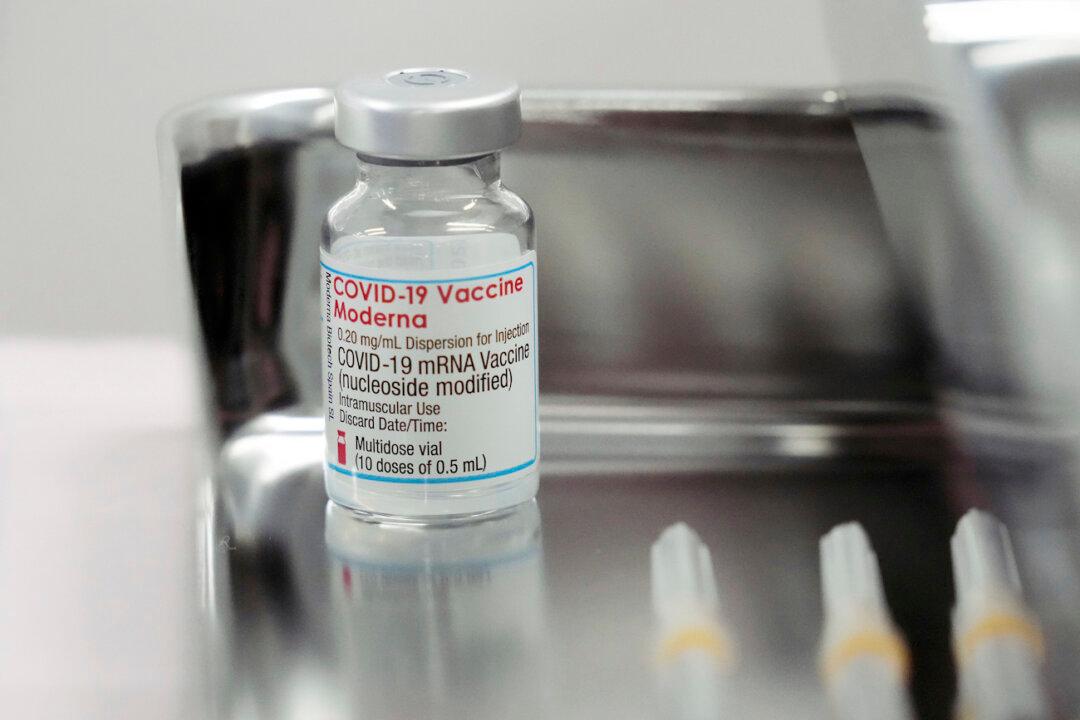A new study seeking to shed light on real-world COVID-19 vaccine effectiveness shows a widening gap between Moderna’s and Pfizer’s vaccines four months after each vaccine’s second dose.
Among the 3,600-plus U.S. adults without immunocompromising conditions who were enrolled in the study, vaccine effectiveness against COVID-19 hospitalization within the first four months of being fully inoculated was higher for the Moderna vaccine (93 percent) than the Pfizer–BioNTech vaccine (88 percent) and the Johnson & Johnson vaccine (71 percent), according to the Centers for Disease Control and Prevention (CDC).





